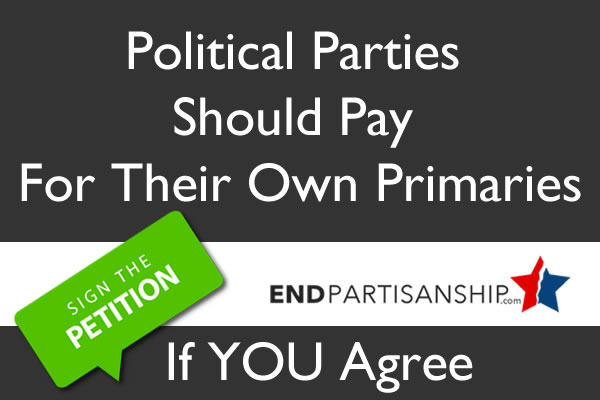Political Gridlock Is Not Caused By a More Divided Electorate

Is there any truth to this?
While nationwide trends show an increase in nonaffiliated voters, I am not going to focus on this aspect of the argument because lawmakers aren't appealing to the electorate as a whole. Because of electoral systems that place greater emphasis on primary elections and not general elections, most of them don't have to appeal to a broader base of the electorate to win re-election.
In order to fully participate in the electoral process in most states, voters are required to register with the Republican or Democratic Party or must choose between either party's ballot. This, alone, challenges the legitimacy of the argument that the electorate is more divided than ever when voters are forced to choose between two sides.
More importantly, however, is:Tea Party favorite Ted Cruz (R-TX) beat out Texas Lieutenant Governor David Dewhurst to fill the U.S. Senate seat left vacant by Kay Bailey Hutchison in 2012. Dewhurst was a long-time front runner in the race and received the most votes in the May primary, garnering 44 percent in a field of 9 candidates. However, because he did not get a decisive majority of the vote, there was a runoff between him and the person who finished in second -- Ted Cruz.
Now, Dewhurst was portrayed by the tea party movement in Texas as the establishment candidate. They accused him of being a moderate and not being committed to the conservative ideology. Ted Cruz was championed by tea party groups in the state as the principled conservative candidate (i.e. more to the right than Dewhurst).
-- just under 8 percent of the total voting age population. So, that means Dewhurst and Cruz went on to the July runoff with approximately 4.8 percent and 3.68 percent of registered voters, respectively, with total voter registration at 71.47 percent.In a state where a Republican candidate in a statewide race is pretty much assured victory, whoever won the runoff was going to be the next senator.The runoff election took place in mid-summer, so voter turnout was already going to be low. However, no matter what people say about the tea party, it is a well-organized movement and can mobilize the get out the vote effort very well. Cruz won the runoff with 56.82 percent of the vote -- the turnout being about 8.51 percent of total registered voters. He went on to win the general election with just over 56 percent of the total vote.
As Wendy Davis pointed on the Rachel Maddow show, there aren't general elections in Texas that really matter. Ted Cruz was essentially chosen to be the next senator of Texas by just over 4 percent of registered voters and an even smaller percentage of the voting age population. This is not an isolated issue either. It is the same for many states across the U.S. because of election systems that put full control of the process in the hands of political parties.
When lawmakers only have to worry about less than ten percent of voters, they are going to do what they can do appeal to that very small percentage of the electorate and that very small percentage of the electorate is choosing lawmakers who fall completely on one side of the ideological spectrum or the other. It is unfortunate that people believe an incredibly small percentage of registered voters is representative of the electorate as a whole.
The claim that partisan gridlock is a result of a more polarized electorate is wrong. If one looks at the shift in societal attitudes on various issues, it is clear that Americans -- and American voters -- are less divided, but that is not the perception some people want the public to have. The truth is, the current makeup of Congress does not adequately represent the American populace.




